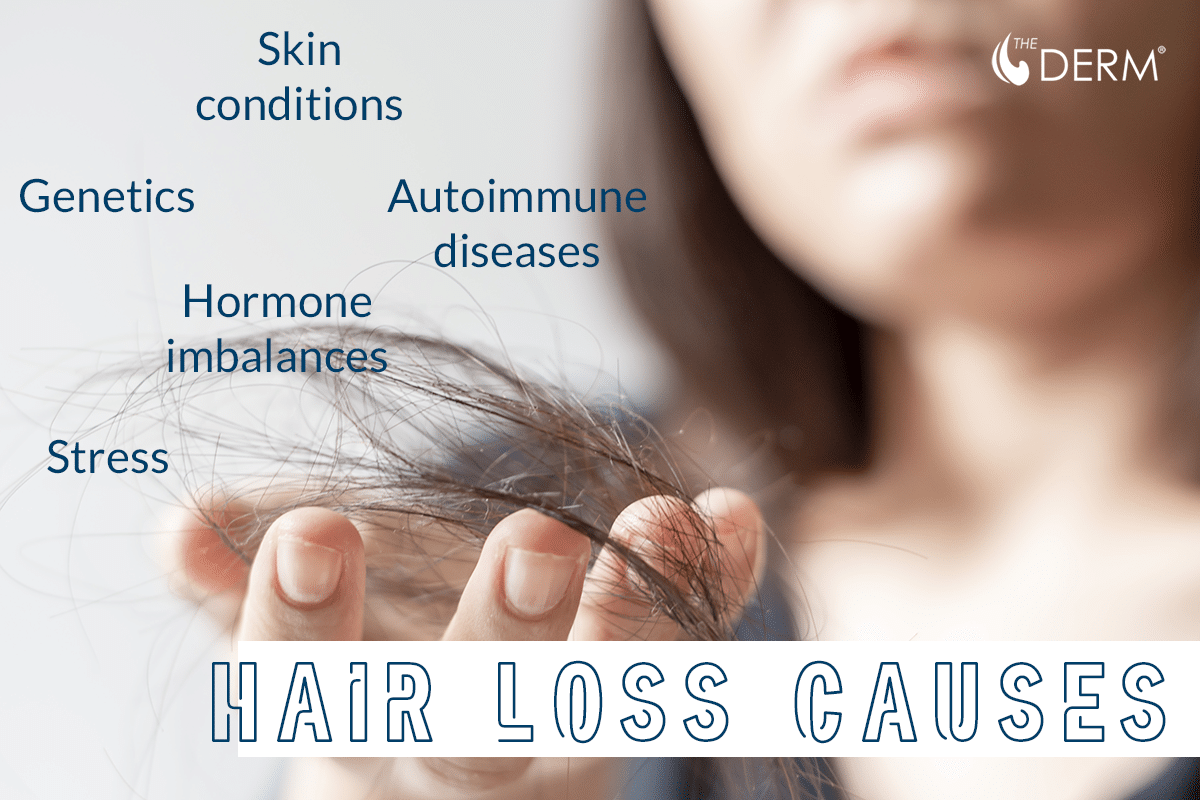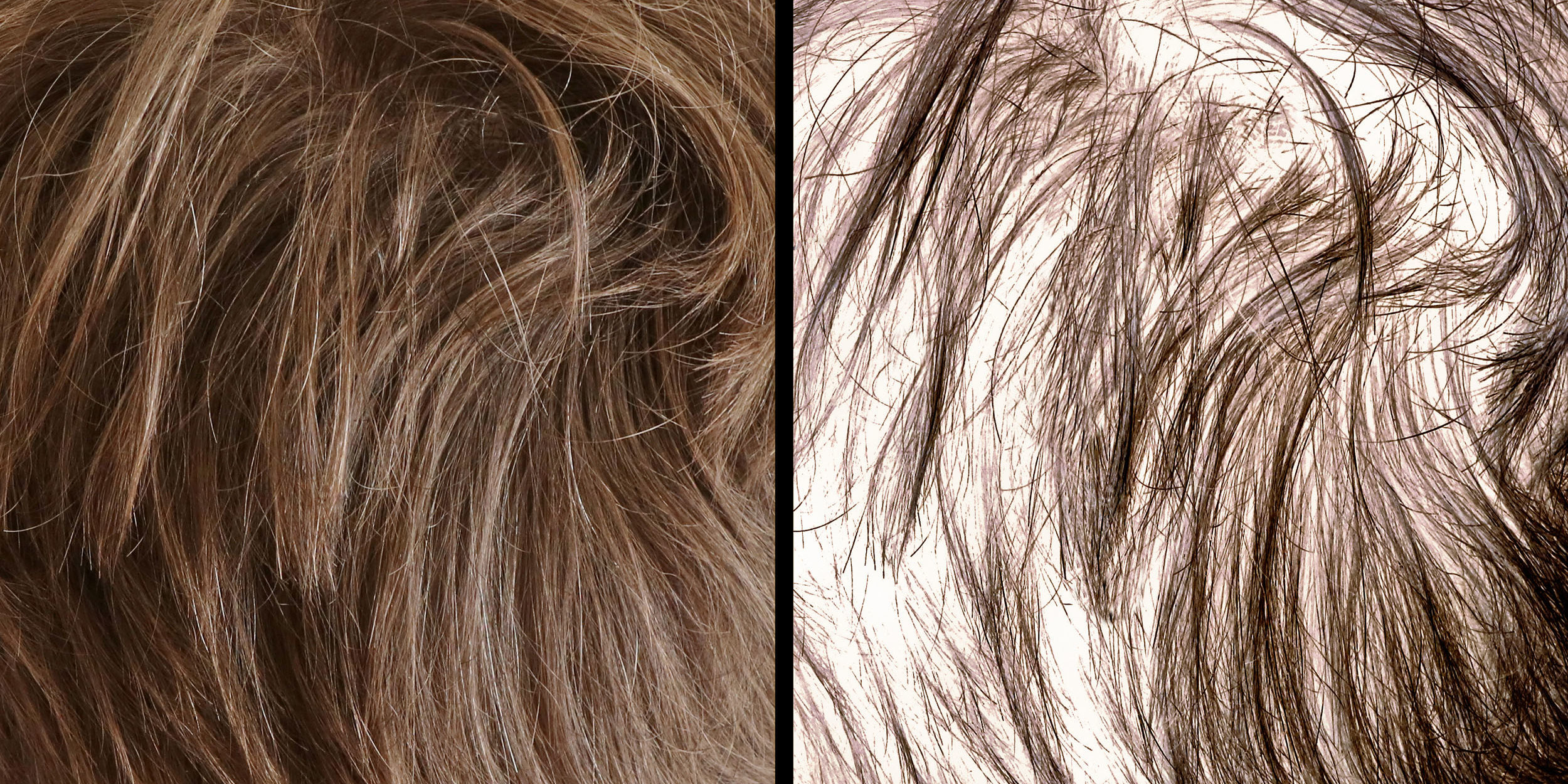Nobody likes hair loss. But as we age, a significant amount of people end up losing their hair, some even by an early age which can wreak havoc on your self-esteem.
While some amount of hair loss as we age is completely normal, some of us experience excessive hair loss and want to remedy the situation. Thankfully, we’re learning more and more about what hair loss truly is, the causes, and how to treat it.
Here’s what you should know about hair loss, especially if you suffer from it.
What is hair loss?
Hair loss (also known as alopecia) is the condition of losing hair prematurely, typically presenting in various forms from thinning around the hairline to falling out in patches randomly on the head.

What causes hair loss?
There are a number of things that can cause hair loss.
Genetics:
One of the main causes of hair loss can be genetic. If one or both of your parents lost their hair prematurely, there are good odds than you may suffer the same fate. However, this doesn’t mean that hope is lost!
Even with genetic hair loss, there are options for maintaining current growth along with restoring it, which we’ll cover below.
Hormone imbalances:
Hormones can impact your hair’s growth. One common example is women who go through pregnancy and childbirth. With the fluctuation of hormones, it’s possible to lose hair throughout the process.
Skin conditions:
Many patients don’t quite think that a skin condition can lead to overall hair loss, especially when that condition is localized to the scalp. If there are certain skin ailments leading to damaged hair follicles, hair loss is inevitable unless the situation is rectified by visiting a dermatologist. However, many people don’t actually know they have a skin condition that’s leading to hair loss, which is why we always recommend seeing a dermatologist.
Stress:
Stress can certainly contribute to hair loss in some individuals. The way stress impacts hair loss is by signaling to the hair follicles to “pause” production, forcing hair growth into a resting phase. Over time, this can make it easier for hair to actually fall out, and not regrow in its place.
Autoimmune diseases:
Certain autoimmune diseases can impact hair growth because the body can attack hair follicles, rendering them inactive or damaging them to a point where they stop producing hair growth.
Treating all of these hair loss causes first takes understanding what specific situation is causing your unique hair loss as not all treatment options are the same.
How can I treat hair loss?
Firstly, you have to know where the hair loss is coming from. What’s causing it?
With us here at The Derm, we have a specific process for identifying the underlying cause of hair loss in order to inform the best treatment option that will work for you.
First, we start with a blood test. Most often, this can help us determine the root cause of your hair loss situation. Not all hair loss treatments are the same and they’re created specifically for the different types.
Once we know what’s causing your hair loss, we’ll be able to create a treatment for it.
Hair Loss Treatment Options
After we’ve discovered the unique cause of your specific hair loss, we can then work on treatment regime.
Here are the various types of hair loss treatments available:
- Prescription topicals
- Supplement
- Nutraceuticals
- PRP for hair loss
Of these options, we’ll work with you on which will be the best solution for your unique hair loss. Oftentimes, that will be a combination of a few various treatments in order to stimulate hair growth in various ways.
Typically, we perform PRP for hair loss in order to stimulate hair growth in dormant follicles. PRP, or platelet rich plasma is a very powerful method of restoring hair loss that requires drawing your own platelets and injecting them into the areas of the hair loss we want to wake up.
Another solution commonly used is Nutrafol. This is a supplement that has shown to be extremely beneficial for hair loss, and patients can order online even without an appointment! Click here to check it out for yourself.
Here at The Derm, we treat with prescriptions, nutraceuticals and PRP.
Ultimately, if you want to restore hair growth, seeing a dermatologist is the very first step to understanding the causes and finding the right solution. Click here to book your appointment!







